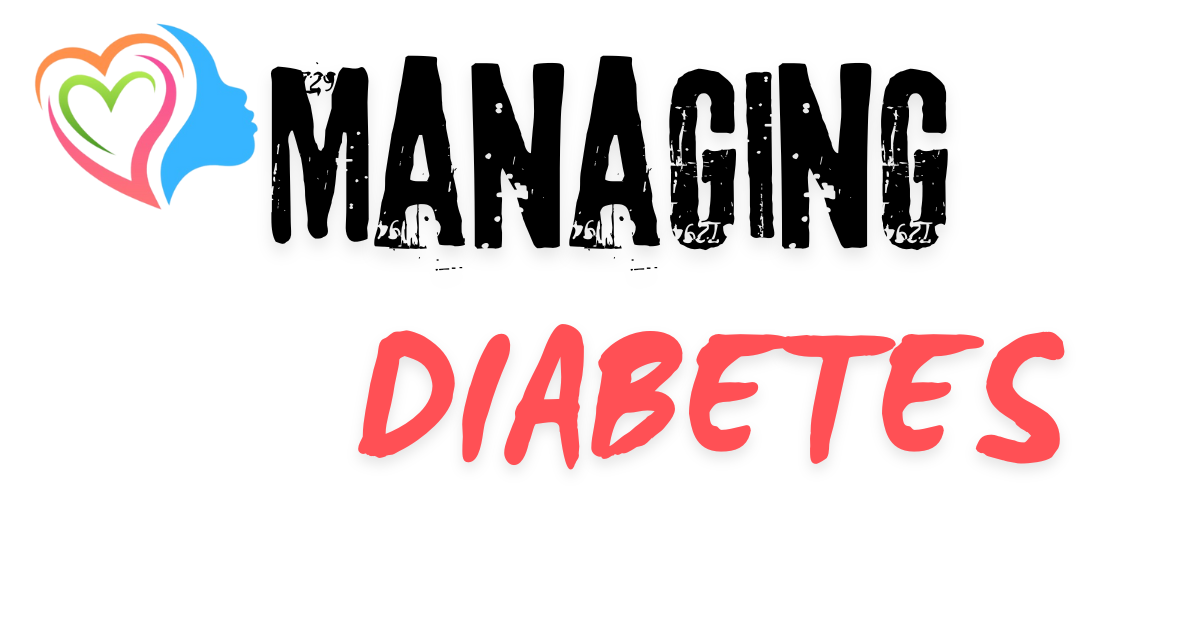
Introduction
Managing blood sugar levels is crucial for individuals with diabetes. Effective management not only helps prevent immediate complications but also reduces the risk of long-term health issues. This guide explores various strategies to maintain optimal blood sugar levels, including diet, exercise, monitoring, medication, and lifestyle adjustments.
Understanding Blood Sugar Levels ( Managing Diabetes )
Blood sugar levels, or blood glucose levels, refer to the concentration of glucose in the blood. Maintaining these levels within a target range is vital for individuals with diabetes to prevent complications. Consistently high blood sugar can lead to serious health issues such as diabetic nephropathy symptoms, which indicate kidney damage. Conversely, low blood sugar levels can cause hypoglycemia, leading to dizziness, confusion, and even loss of consciousness.
Diet and Nutrition
A balanced diet is a cornerstone of diabetes management. Proper nutrition helps regulate blood sugar levels and supports overall health. Here are some dietary recommendations:
- Whole Grains: Foods like oats, quinoa, and brown rice provide sustained energy and help maintain stable blood sugar levels.
- Vegetables: Non-starchy vegetables such as spinach, broccoli, and peppers are low in calories and high in nutrients, making them excellent choices for blood sugar control.
- Lean Proteins: Incorporating lean meats, fish, tofu, and legumes can help stabilize blood sugar levels and promote satiety.
- Healthy Fats: Avocados, nuts, and olive oil provide essential fatty acids that support heart health without spiking blood sugar levels.
- Fiber-Rich Foods: Foods high in fiber, like fruits, vegetables, and whole grains, slow the absorption of sugar and improve blood sugar control.
Avoiding processed foods, sugary drinks, and excessive amounts of refined carbohydrates is also essential. These foods can cause rapid spikes in blood sugar levels and contribute to weight gain, exacerbating diabetes management challenges.
Physical Activity
Regular physical activity plays a significant role in managing blood sugar levels. Exercise increases insulin sensitivity, allowing cells to use available glucose more effectively. Here are some recommended activities:
- Walking: A simple and accessible form of exercise that can be easily incorporated into daily routines.
- Swimming: An excellent low-impact exercise that provides a full-body workout without putting stress on the joints.
- Strength Training: Building muscle mass through weightlifting or resistance exercises helps increase insulin sensitivity and maintain healthy blood sugar levels.
- Aerobic Exercises: Activities like cycling, jogging, and dancing improve cardiovascular health and aid in blood sugar regulation.
It’s important to consult with a healthcare provider before starting any new exercise regimen, especially for those with underlying health conditions.
Monitoring Blood Sugar Levels
Regular monitoring of blood sugar levels is crucial for effective diabetes management. There are several methods available:
- Glucometers: Portable devices that allow individuals to test their blood sugar levels at home using a small blood sample from a fingertip.
- Continuous Glucose Monitors (CGMs): Devices that provide real-time blood sugar readings throughout the day and night, offering valuable insights into blood sugar trends and patterns.
Keeping a log of blood sugar readings helps identify patterns and triggers, enabling more precise adjustments to diet, exercise, and medication regimens.
Medication and Insulin Management
For many individuals with diabetes, medication and insulin are essential components of blood sugar management. There are various types of diabetes medications:
- Oral Medications: These include drugs like metformin, which helps reduce glucose production in the liver and improve insulin sensitivity.
- Injectable Medications: GLP-1 receptor agonists and insulin are common injectable treatments that help regulate blood sugar levels.
Following medication regimens as prescribed by healthcare providers is critical. Skipping doses or taking incorrect amounts can lead to uncontrolled blood sugar levels and increase the risk of complications.
For those requiring insulin, proper storage and usage are vital. Insulin should be stored in a cool place, and syringes or pens should be used as directed. It’s also essential to rotate injection sites to prevent lipodystrophy, a condition where fat tissues become damaged.
Lifestyle Tips for Better Blood Sugar Control
In addition to diet, exercise, and medication, certain lifestyle practices can significantly impact blood sugar levels:
- Stress Management: Chronic stress can raise blood sugar levels. Practices like mindfulness, meditation, and yoga can help manage stress effectively.
- Adequate Sleep: Poor sleep can negatively affect insulin sensitivity. Aim for 7-9 hours of quality sleep per night to support overall health.
- Hydration: Staying hydrated helps maintain normal blood sugar levels. Water is the best choice, while sugary drinks should be avoided.
- Avoiding Smoking and Limiting Alcohol: Smoking can increase the risk of diabetes complications, and excessive alcohol intake can lead to unstable blood sugar levels. Quitting smoking and limiting alcohol consumption are crucial steps for better diabetes management.
Conclusion
Managing diabetes effectively involves a combination of balanced nutrition, regular physical activity, diligent blood sugar monitoring, and adherence to medication regimens. Incorporating practical lifestyle changes, such as managing stress and ensuring adequate sleep, further supports optimal blood sugar control. By taking a comprehensive approach to diabetes management, individuals can lead healthier, more balanced lives and reduce the risk of complications such as diabetic nephropathy symptoms. Regular consultations with healthcare providers ensure that management plans are tailored to individual needs, promoting long-term health and well-being.




